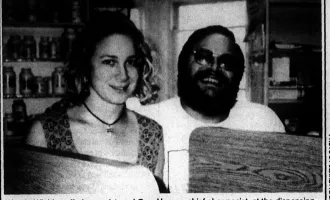Negotiating Job Offers
Here’s a common negotiation situation: you have a job offer from Organization #1, who is waiting to hear your response, but you’re still waiting to hear back from Organization #2. Here are the four questions that students and postdocs ask:
1. How much time can I take before I give Organization #1 a final answer?
Most organizations are usually willing to wait a week - possibly two - for your decision to accept or reject their offer. Why is your decision window so narrow, since the interview process probably took months? It’s because if you turn them down, the employer can move quickly onto their second choice.
How can you maximize the amount of time you get to make a decision after being given an offer? When initially given the offer, express your enthusiasm, and request time to consider it. The language at the stage is something like, “Thank you so much for the offer. I’m very excited about it. It’s a big decision that affects my whole family – can I give you a response in a week?” or, “I’m very enthusiastic about the offer – Could you send me a copy of the offer letter to review? Also, can I give you my final answer by the 15th?”
2. Can I push Organization #2 to let me know if I’m their selected candidate?
It depends on where you are in their hiring process. If they have not yet interviewed you, there is no way to speed up the process. If you have interviewed with Organization #2, it’s worth contacting the hiring manager you interviewed with to let them know you have an offer and inquire about their timeframe.
Optimally, you would contact the employer by phone, but email also works. Appropriate language is some variation of the following: “I hope you’re well. I’m contacting you to ask you about your hiring timeframe for the position I interviewed for last week. I’ve just received another offer, but Organization #2 remains my top choice. Any insight you could give about where you are in your hiring process would be greatly appreciated.”
If you’re a top candidate, their questions will focus on who made you the offer, and your timeframe. They will then get back in touch with you with an offer as well. If you’re not their top candidate, they’ll say they’re uncertain of their timeframe, or don’t plan to make a decision for several weeks.
3. Should I risk turning down Organization #1 and wait for Organization #2?
One of the interesting quirks of human nature is the extra positive feeling we get because we’ve chosen between different options, regardless of how good they are. It’s why so many of us take our time to glance over the whole menu at a restaurant.
In reality, we’re rarely choosing our optimal choice, but the best choice between the options available to us on the menu. When deciding between positions we recommend a different decision making process: Compare your various job options against your ideal position, rather than between each other.
A helpful rule of thumb is that if over 80% of the features of a position meet your criteria of your ideal position, it’s probably is a good fit for you. Consider the factors of your ideal position - what matters to you? Is it location, the day-to-day responsibilities, salary, your boss, autonomy, or room for growth? In this case, rather than wondering if Organization #2’s position would be a better fit for you, ask yourself if Organization #1’s position meets your 80% threshold. If it doesn’t, that’s more reason to wait.
Finally, what’s the #1 question students and postdocs ask?
4. Can I accept Organization #1’s position, and then move to Organization #2 if they do ultimately make me an offer?
This question is usually paired with the justification that at many organizations, you are an at-will employee, which means that Organization #1 one could fire you at any time. These situations aren’t really comparable to the scenario in this article: accepting an offer, than dropping it for something ‘better.’ It’s not the norm for organizations to make you an offer, only to rescind it a few weeks later because a ‘better’ candidate became available.
Can you take a position and leave it in a few weeks if you get another offer you consider to be better? The short answer is that you can, but you probably not without consequences, if not to your career, but also to relationships you consider important. In addition to burning bridges at the Organization #1, your decision may become known to other employers if your hiring manager is well-networked in your field.
Finally, there are your references to consider. They may also have contacts at Organization #1. Your decision to renege may also affect their reputation, as they vouched for your professionalism as a reference. Ultimately, they might not agree to serve as a reference for you in the future.
As you can see, this decision can be a difficult one. It sometimes helps to talk through your thought process and the factors influencing your decision. If you’d like help, schedule an appointment with an OCPD counselor at (415) 476-4986.

